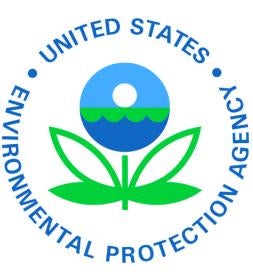As we wrote about previously, in February 2016 the International Civil Aviation Organization (ICAO) proposed international standards to limit the emissions of greenhouse gas (GHG) emissions from airplane engines. Last week, the EPA finalized the first step to create domestic emissions standards for airplanes when it officially found that GHG emissions from certain types of aircraft engines contribute to climate change. Now that EPA has issued this determination — known as an “Endangerment Finding” — it is required to regulate these emissions under the Clean Air Act. EPA may propose new domestic emissions rules before the end of President Obama’s term and it has announced the limits will be at least as stringent as the international standards ICAO proposed in February.
 The airplane industry is just the latest regulatory target in the Obama Administration’s efforts to regulate GHG emissions. In 2009, EPA made an Endangerment Finding for GHG emissions from motor vehicles. The agency found that GHGs, in general, threaten the public health and welfare of current and future generations and that GHG emissions from motor vehicles contribute to this threat. This finding led EPA to issue new emissions standards for light-duty and heavy-duty vehicles in 2010 and 2011, respectively. Since that time, EPA has also issued a number of other regulations aimed at reducing GHG emissions from power plants and landfills. EPA’s latest Endangerment Finding officially begins the process under the Clean Air Act to regulate GHG emissions from airplane engines, as EPA has previously done for other sources.
The airplane industry is just the latest regulatory target in the Obama Administration’s efforts to regulate GHG emissions. In 2009, EPA made an Endangerment Finding for GHG emissions from motor vehicles. The agency found that GHGs, in general, threaten the public health and welfare of current and future generations and that GHG emissions from motor vehicles contribute to this threat. This finding led EPA to issue new emissions standards for light-duty and heavy-duty vehicles in 2010 and 2011, respectively. Since that time, EPA has also issued a number of other regulations aimed at reducing GHG emissions from power plants and landfills. EPA’s latest Endangerment Finding officially begins the process under the Clean Air Act to regulate GHG emissions from airplane engines, as EPA has previously done for other sources.
EPA has announced that its emissions rules will be based on ICAO’s standards. ICAO is a specialized agency of the United Nations. Its rules are likely to be finalized in March 2017, will begin taking effect in 2020, and are expected to result in a 4% decline globally in average fuel consumption for new airplane engines. These rules were largely embraced by industry. Environmental groups, however, have criticized the rules as not ambitious enough and have vowed to push for more stringent standards domestically.
The fact that the Obama Administration will leave office before the ICAO rulemaking is finalized leaves EPA’s regulatory timeline in doubt. Manufacturers and the airline industry should continue to stay abreast of EPA’s regulatory docket for the coming year. As soon as EPA proposes standards, a public comment period will open, allowing both industry and environmental groups to offer input. Please contact a member of Schiff Hardin’s Environmental Group with any questions concerning the future regulation of airplane GHG emissions.



 i
i

